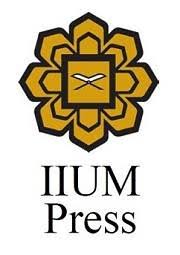Women’s Role as Mufassir and Their Contributions to Qurʾanic Exegesis
DOI:
https://doi.org/10.31436/alburhn.v5i2.197Keywords:
Quranic studies, Quranic exegesis, Women, Feminist, TafsirAbstract
The role of the Qurʾan as the primary legal source in Islam is inevitable among Muslims. Previous and present scholars have discussed the study of the Qurʾan in various fields, and many efforts have been done to understand its content from multiple languages. In addition, Qurʾanic exegesis or tafsīr is another important branch that contributes a lot in understanding the Qurʾan. However, it has been long debated that Qurʾanic exegesis was dominated by men since the seventh century. Due to the challenge debated by feminists, women began to question males’ interpretation and gradually produce their own interpretation by affirming the concept of ‘women-friendly’. Therefore, this study aims to analyse their arguments and to discover the contributions of women in Qurʾanic exegesis from the eighteenth century to the present day. By applying the qualitative method, this study found that all tafsīr written by female mufassirs have different formats, purposes, methods, and approaches. There is also need and demands of women scholars in Qurʾanic exegesis, because undeniably, there are differences found in the interpretations of male and female scholars. However, it is vital to highlight that the main responsibility to understand the Qurʾan and apply its content in daily life should not be determined by gender, but it lies within an individual’s obligation.
Downloads
References
‘Izzat, Hibah Ra’uf. al-Marʾah Wa al-ʿAmal al-Siyasi: Ruʾyah Islamiyyah. Herndon: al-Ma`had al-‘Alamiy li al-Fikr al-Islamiy, 1996.
’Afaf Abd al-Ghafur Hamid. ‘Min Juhūd al-Marʾah Fī Tafsīr al-Qurʾān al-Karīm Fī al-ʿAṣr al-Ḥadīth’. Majallat Kuliyyah Sharīʿah Wa al-Dirasāt al-Islāmiyyah 25 (2007): 166–232.
Abū al-Saʿūd, ʿAbd Allāh. Tafsīr Umm al-Muʾminīn ʿAʾishah. Riyadh: Dār ʿĀlam al-Kutub, 1996.
al-Dhahabī, Muḥammad Ḥusayn. al-Tafsīr Wa al-Mufassirūn. Cairo: Dār al-Hadīth, 2005.
al-Fanisan, Saʿūd Ibn ʿAbd Allāh. Marwiyyāt Umm al-Muʾminīn ʿĀʾishah Fī al-Tafsīr. Riyadh: Maktabah al-Tawbah, 1992.
al-Ghazālī, Zaynab. Naẓarāt Fi Kitāb Allāh. Cairo: Dār al-Shurūq, 1994.
al-Kawārī, Kāmilah bint Muḥammad. ‘al-Sīrah al-Dhātiyyah’. Mawqiʿ Ṭālibat al-ʿIlm Kāmilah al-Kawārī. Accessed 1 August 2021. http://alkuwarih.com/content/السيرة الذاتية.
———. Tafsīr Gharīb al-Qurʾān. Beirut: Dār Ibn Ḥazm, 2008.
al-Khālidī, Ṣalāh ʿAbd al-Fattāḥ. Taʿrīf al-Dārisīn Bi Manāhij al-Mufassirīn. Damascus: Dār al-Qalam, 2002.
al-Shahrī, ʿAbd al-Raḥmān. ‘Ṣudira Ḥadīthan Kitāb al-Durrah Fī Tafsīr Sūrat al-Baqarah Li al-Ustādhah Miyādah al-Maḍī’. Multaqa Ahl al-Tafsīr, 2006.
Ali, Syed Mohammed. The Position of Women in Islam: A Progressive View. Albany, New York: State University of New York, 2004.
Aydar, Hidayet, and Mehmet Atalay. ‘Female Scholars of Quranic Exegesis in the History of Islam’. Journal of Theology Faculty of Bülent Ecevit University 1, no. 2 (2014): 1–34.
Badran, Margot. Feminism in Islam: Secular and Religious Convergences. Oxford: Oneworld Publications, 2009.
Barazangi, Nimat Hafez. ‘The Absence of Muslim Women in Shaping Islamic Thought: In Shaping Foundations of Muslims’ Peaceful and Just Co-Existence’. Journal of Law and Religion 24, no. 2 (2008): 403–32.
Denffer, Ahmad Von. Ulum Al Qurʾan: An Introduction to the Sciences of the Qurʾan (Koran). Kano, Nigeria: The Islamic Foundation, 2011.
Engineer, Asghar Ali. Rights of Women and Muslim Societies, 2004.
———. The Qurʼan, Women, and Modern Society. UK, USA & India: New Dawn Press, 2005.
———. The Rights of Women in Islam. New York: St. Martin’s Press, 1992.
Esposito, John L., ed. The Oxford Dictionary of Islam. Oxford: Oxford University Press, 2003. https://doi.org/10.1093/acref/9780195125580.001.0001.
———. The Oxford Encyclopedia of the Modern Islamic World. Oxford: Oxford University Press, 1995.
Fawaid, Ah. ‘Pemikiran Mufasir Perempuan Tentang Isu-Isu Perempuan’. KARSA: Jurnal Sosial Dan Budaya Keislaman 23, no. 1 (2015): 57–80.
Fikriyati, Ulya. ‘Reinterpretasi Teks al-Qurʾan: Analisis Status Tafsir Pada Akun Facebook Hanan Lahham’. Suhuf 11, no. 1 (2018): 55–76. https://doi.org/10.22548/shf.v11i1.302.
Hassan, Riffat. ‘Challenging the Stereotypes of Fundamentalism: An Islamic Feminist Perspective’. The Muslim World 91 (2001): 55–70.
Hatem, Mervat F. ‘’A’isha Abdel Rahman: An Unlikely Heroine A Post-Colonial Reading of Her Life and Some of Her Biographies of Women in the Prophetic Household’. Journal of Middle East Women’s Studies 7, no. 2 (2011): 1–26.
Ibn Kathīr, Ismāʿīl ibn ʿUmar. Tafsīr al-Qurʾān al-ʿAẓīm. Beirut: Dār Maktabah al-Hilāl, 1986.
Khair, Nur Saadah Binti. ‘Anti-Woman Discourse in the Hadith Literature: An Analytical Study of Debates in Literary Works of Feminists and Fundamentalists’. University of Birmingham, 2018.
Khan, Wahiduddin. Women Between Islam and Western Society. New Delhi: al-Risala Books, 1995.
Mawdūdī, Abū Aʾlā. Purdah and the Status of Women in Islam. 16th Editi. Lahore, Pakistan: Islamic Publication Ltd, 1988.
Miyadah bint Kamil. al-Durrah Fi Tafsir Surah al-Baqarah. Beirut: Mu’assasah Risalah, 2006.
Moghadam, Valentine M. ‘Islamic Feminism and Its Discontents: Toward a Resolution of the Debate’. Signs: Journal of Women in Culture and Society 27, no. 4 (2002): 1135–71.
Moghissi, Haideh. Feminism and Islamic Fundamentalism: The Limits of Postmodern Analysis. London, UK and New York, USA: Zed Books Ltd, 1999.
Muhammad, Maslina, Mustaffa Abdullah, and Monika Munirah Abd Razzak. ‘Nailah Hashim Sabri: Tokoh Tafsir Wanita Abad Ke-21’. Journal al-Muqaddimah 7, no. 2 (2019): 1–12.
———. ‘Sumbangan Wanita Dalam Bidang Tafsir : Sorotan Dari Zaman Awal Islam Hingga Abad Ke 18’. Online Journal Research in Islamic Studies 6, no. 2 (2019): 29–43.
Roded, Ruth. ‘Bint al-Shati’s “Wives of the Prophet”: Feminist or Feminine?’ British Journal of Middle Eastern Studies 33, no. 1 (2006): 51–66. https://doi.org/10.1080/13530190600603915.
Saeed, Abdullah. Interpreting the Qurʾan: Towards a Contemporary Approach. London and New York: Routledge, 2006.
Saleh, Yasmine. ‘Kariman Hamzah: Egypt’s First Female Quran Interpreter’. Daily News Egypt, 2008.
Wadud, Amina. Qurʾan and Woman: Rereading a Sacred Text from a Woman’s Perspectives. New York: Oxford University Press, 1999.
Zein Ed-Dīn, Nazīrah. ‘Removing the Veil and Veiling’. Women’s Studies International Forum 5, no. 2 (1982): 221–26. https://doi.org/10.1016/0277-5395(82)90029-2.
Downloads
Published
How to Cite
Issue
Section
License
In general, reusing or reproducing substantial portions of al-Burhān content requires permission. This includes the use of text, figures, tables, multimedia content, and any other material published in any issues of al-Burhān Journal of Qur'an and Sunnah Studies. For some instances, al-Burhān may make its content freely viewable; however, such material may require permission for reuse. To seek permission, please contact the editorial.









